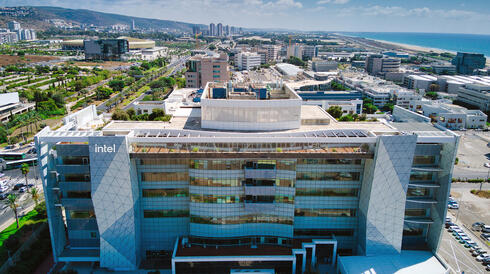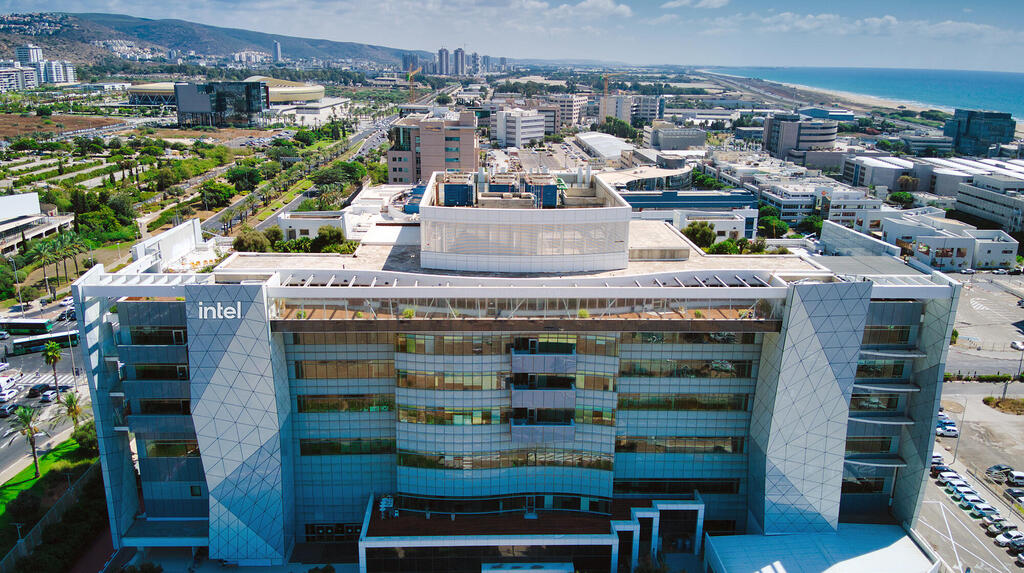
Intel’s new $15 billion investment puts Israel at forefront of global chips war
Intel's significant investment in Israel, which comes in addition to the $10 billion commitment by the company from 2019, highlights the importance of its local operations considering the substantial incentives it also receives in the U.S. and Europe
The Ministry of Finance announced on Sunday that Israel and Intel have reached an agreement according to which the company will build a new chip factory in Israel with an investment of $25 billion. However, contrary to the announcement, Intel has not committed to a new $25 billion investment, but rather to another $15 billion on top of the $10 billion investment it announced in 2019. The formal approval of the agreement is expected to be received in a few weeks.
Intel and Israel agreed to build a new factory in Kiryat Gat at a cost of $10 billion in 2019, but its construction was delayed due to the Covid-19 pandemic. During recent discussions with the Ministry, the old plans resurfaced, coinciding with Intel's international efforts to expand its production capabilities worldwide. As part of this strategy, Intel agreed to increase the investment in the new factory, which will be larger and more advanced than the one planned in 2019, and will operate as part of a production complex known as a Megafab.
According to a press release from the Ministry of Finance, Intel is expected to hire thousands of additional workers in Kiryat Gat, offering wages higher than the industry average. Additionally, Intel has agreed to increase the tax rate it will pay to the state from 5% to 7.5%. The company aims to complete the investment and commence plant operations by 2027, with plans to operate it until at least 2035. In return, Intel will receive a grant under the law to encourage capital investments, amounting to 12.8% of the investment, subject to meeting certain goals.
The Ministry of Finance's estimates suggest that the investment will yield significant macroeconomic benefits, particularly given the global economic slowdown and the competition to attract technology and chip manufacturing companies. The Ministry also asserts that the investment will generate direct fiscal benefits for Israel surpassing the grants provided. Yogev Gordus, the head of the Budgets Division at the Ministry, stated: "Intel's investment of approximately NIS 90 billion will bring significant economic benefits to the State of Israel, especially the southern region." He further emphasized the rigorous economic considerations undertaken during negotiations with Intel to maximize value for the Israeli public compared to alternative options available to the company globally.
Intel Israel didn't comment directly on the announcement or confirm any of the details, saying: "Israel is a global center of technical talent and innovation and one of Intel's significant global manufacturing and R&D centers. Since its establishment in 1974, Intel Israel has played a crucial role in Intel's global success. Our intention to expand manufacturing capacity in Israel is driven by our commitment to meeting future manufacturing needs and supporting Intel's IDM 2.0 strategy, and we appreciate the continued support of the Israeli government."
Intel's recent investment in Israel marks another international deal for the company. Intel announced last week plans to invest approximately $4.6 billion in a chip assembly and testing plant in Warsaw, Poland, that will join manufacturing facilities in Ireland and Germany.
The new factory in Israel is more similar to investments announced by Intel last year, such as the two plants in Ohio announced in January 2022 with an initial investment of $20 billion, potentially reaching $100 billion if the company proceeds with its plans for an eight-plant complex. Additionally, a production plant in Germany was announced in March 2022, estimated to cost €17 billion.
Intel's decision to invest in Israel should come as no surprise, given the company's long standing manufacturing tradition in the country. The Kiryat Gat complex has consistently showcased the company's technological capabilities, supported by local R&D centers leading the development of advanced chips. Intel has the necessary infrastructure, employee expertise, and established relationships to justify the decision to establish another plant in Kiryat Gat. However, the timing of the announcement begs the question of whether the ongoing political crisis in Israel resulted in a delay in the announcement.
CEO Pat Gelsinger's strategic direction, outlined two years ago, drives Intel's global plans. Previously focused on producing chips resulting from their own development, Intel has adapted to the changing landscape. Manufacturers, like Apple, increasingly opt to develop their own processors and silicon components tailored to their specific needs. While Intel has the knowledge and advanced manufacturing capabilities sought after by many, they were at risk of missing out on the lucrative white label production market worth hundreds of billions, if not trillions, of dollars.
To enter this field successfully, Intel recognized the need for a significant increase in production capacity and the establishment of advanced factories capable of meeting diverse requirements and delivery rates. This strategy explains Intel's push to establish new factories worldwide, making the Kiryat Gat factory an integral part of their plans. The Biden administration supports this approach, aiming to enhance chip production capabilities in the U.S. and the Western world. The administration's initiatives, such as the CHIPS Act, offer incentives totaling $52 billion to encourage the establishment of chip factories in the U.S. The European Union has also allocated $47 billion to the field, emphasizing the global importance of chips in the modern economy and the need to reduce reliance on Asia.
Intel's significant investment in Israel, despite substantial incentives from the U.S. and Europe, reflects the quality of the local production center and Intel's recognition of the intrinsic value of the capabilities established in Israel.














